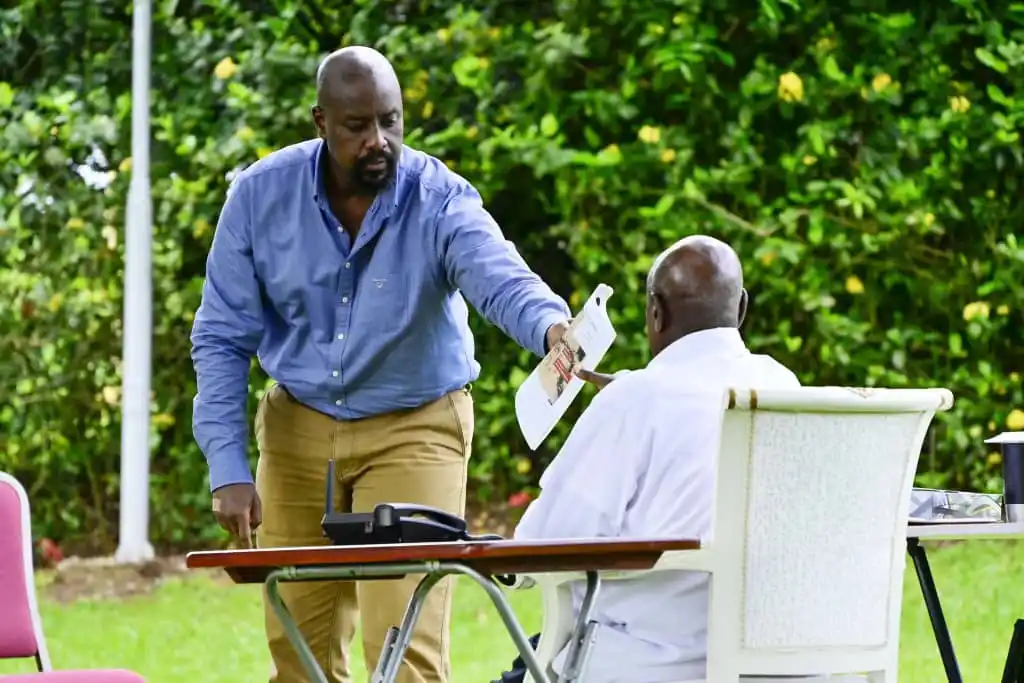
The Crown Media East Africa
June 11, 2025 at 12:30 PM
*The Trinity Statement: Political Metaphor, Not Blasphemy — Understanding Anita’s Message*
Published by The Crown Media East Africa
In recent days, Uganda has witnessed waves of criticism sparked by Speaker Anita Annet Among's statement in Kyazanga, where she said: "We believe in the Trinity. We believe in God the Father; and God the Father is President Museveni. God the Son is MK, and now you are the Holy Spirit. Therefore, vote for them. God be with you all.”
Some commentators have rushed to portray this as a dangerous act of deification, a doctrinal violation, and even a spiritual crisis for the nation. However, this reaction ignores the context, intent, and political language that define African political discourse.
First, it is clear that Speaker Among was not delivering a theological teaching, but rather using a metaphor to illustrate unity and loyalty within Uganda’s current leadership structure. The Trinity comparison was not meant to assign divinity to any of the individuals mentioned, but to emphasize their interconnected roles: the fatherly leadership of President Museveni, the generational handover symbolized by Muhoozi Kainerugaba, and the essential participation of the people — likened to the Holy Spirit — in moving the country forward. It was campaign rhetoric aimed at mobilizing supporters emotionally, not redefining Christian belief.
Political language, especially in Africa, often borrows from religion, culture, and tradition to inspire loyalty. Leaders worldwide have been called "saviors," "fathers of the nation," or even "God-sent," yet such expressions rarely trigger full-scale theological debates. Ugandans, like citizens everywhere, are fully capable of distinguishing political slogans from religious doctrine.
The claim that such statements endanger democracy, encourage blind worship, or signal creeping authoritarianism is both an overreach and a misunderstanding of Uganda’s political reality. Uganda remains a vibrant society with open public debate, civic engagement, and political contestation. The statement made by the Speaker, while dramatic, does not equate to a national shift toward dictatorship or idolatry.
Historical comparisons to ancient empires or past Ugandan regimes only serve to inflame public anxiety rather than foster rational discourse. Uganda’s current leadership continues to operate within a constitutional framework, and public institutions remain active and functional. The Speaker’s remarks, in this context, reflect political theater — not a descent into theological crisis.
At its core, Anita Among’s message was a call for unity, stability, and the continuity of leadership. It symbolized a team working together — the current president, his successor, and the Ugandan people — each playing a role in the country’s future direction. The metaphor was intended to motivate supporters, not confuse believers.
Uganda’s citizens have the wisdom and discernment to separate campaign language from matters of faith. Political speech should be evaluated for its intent, not twisted into something it was never meant to be.
*The Crown Media East Africa*

👏
😂
2